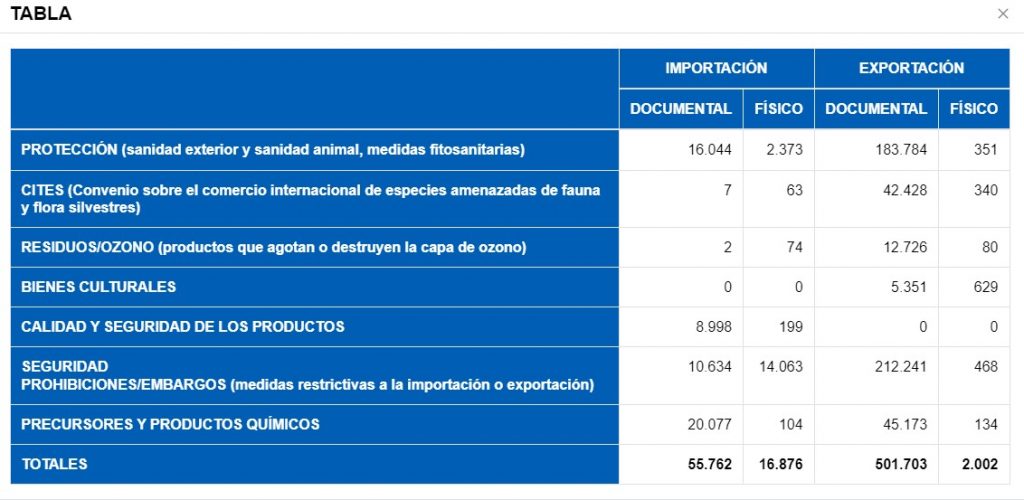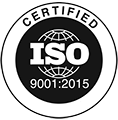Below you can choose which kind of cookies you allow on this website. Click on the "Save cookie settings" button to apply your choice.
Customs and Big Data: AEAT’s new tools that generate risk profiles
In the last report published by Spain’s State Agency for Tax Administration (AEAT), we find an interesting statistic that counts the number of physical and documentation checks carried out in 2020 on goods subject to international trade, both in imports and exports. The total result shows a considerable increase in electronic compared to physical procedures.
In 2019, prior to the pandemic, there were around 700,000 checks carried out, which translates into around 1,916 checks daily. During 2020, however, with several months of low activity, daily checks fell to around 1,600.
In this scenario, modified after the effects of the pandemic, where electronic procedures have been gaining ground over physical ones in many areas, the number of documentation checks has increased from 92% to 97% of the total.
Although when it comes to forecasts and predictions, it is hard to make solid statements that are sustained over time, at the time of writing, there is some consensus that activity in ports will continue to increase during 2022.
Therefore, in order to fulfil the mandate of the European Commission for the protection and security of legitimate trade and citizens of the European Union, AEAT must be able to keep pace with these increases in trade. Tools that speed up the mass processing of documents are undoubtedly key to such compliance.
This is why, in early 2021, AEAT awarded a contract for almost 4 million euros for the maintenance and development of applications in the areas of information analysis systems, big data, data mining. and language technologies, as per the wording of the contract award itself.
For senior officials at AEAT, these models do not seek to replace the current selection systems based on human experience gained over time, but instead are complementary facilitating tools.
Risk profiles generated through historical data analysis
Without doubt, in recent years, the capacity for data collection has progressively increased as a result of the use of new sources and tools for obtaining information.
Thus, the Tax Administrations have in their power a huge amount of data from internal sources, either traditional ones (via agreement, acquisition, or supply) or from new digital sources, as well as data transferred from other national and international economic actors, which are stored in different structured and unstructured formats.
However, if all this information, which is increasingly abundant and complete, is disordered and disconnected and if its elements cannot be related to each other, it will not be useful or manageable, and will not serve the intended purposes.
Therefore, AEAT has developed a powerful tool called Hermes for risk management, based on existing information in the complex database system ZUJAR, which is capable of ordering, filtering, and reproducing information so that it can be exploited by the DEDALO system (and others) in the way it needs to be consumed.
It is no longer enough to obtain inconsistencies under review, based on specific data from specific tax subjects. Instead, using these new techniques, risk indices are generated through the typified view of ratios and standard deviations, generating risk profiles that are refined with the successive actions fed into the system.
The machines are already in the process of learning, so it is a matter of time for the algorithms to be refined and detect smaller deviations in the models generated with all this historical data that will allow the system to predict the likelihood of fraud and inaccuracies in similar cases to those that have powered the models. In other words, the system predicts what it expects from each tax subject who files a return and checks whether the reality fits its calculations.
Economic operators will be required more than ever to manage their own information in a complete, efficient, proven, and detailed way to keep their data within the foreseeable parameters of their activity if they do not wish to be unpleasantly surprised.
 Ismael Barriuso Gomez
Ismael Barriuso Gomez
Head for logistics processes
at VASCO







